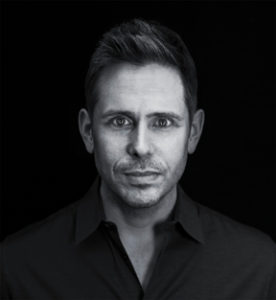The Audacity of Cannes
By Chris Duffey
Chief Technology Officer
Sudler & Hennessey
Editor’s note: Mr. Duffey served as a jury member for Health & Wellness Lions 2016
As another year has come and gone it’s time for we creative types to review the highlights from Cannes Lions 2016. Over the past 10 days, 10 trends have emerged throughout the judging process and the festival itself. These trends are not just advertising trends but rather principles and values for success in business.
1) The definition of creativity has broadened
Time and time again we saw that creativity has the ability to permeate your soul and blow your mind. A curated brand story is stronger than ever. Technology may be advancing at supersonic speeds, but the power of a creative idea is still at the core of what we do, whether a campaign choses to leverage product creation, causvertising, you name it … it is still ultimately about creativity.
2) Robots have not taken over. Yet
Every industry is being “disrupted” by technology, and ours is no different; however, robots and technology are not the idea in of themselves, even though in many cases they do a phenomenal job amplifying it. There is that saying “Art is what science cannot explain,” and it is that art, that “je ne sais quoi” that we create and celebrate at Cannes. There is no substitute for a great concept – ideas translate universally and emotions are globally relatable. The best way to connect with people continues to be to connect your brand with powerfully creative ideas. As IAB’s study noted, award-winning creative ideas are 11 times more effective, and brands that magically found the right balance of merging creativity and technology had unprecedented success.
3) Health is the new Green
One of the biggest opportunities for brands, agencies, and businesses is health. And building an immersive, intimate, and inspiring relationship between consumers and the brands, with a focus on health benefits, is fertile ground for all.
4) Build authentic relationships
The power is now in the hands of the audience, largely due to the digital revolution and the democracy of access to information. With that comes the consumer expectation for an authentic and intimate relationship and conversation with brands, similar to what audiences now have with celebrities via social channels. This genuine connection between consumers + brands has the ability to build deep trust and engagement; however, these permission-based relationships are incredibly difficult to form, execute, and maintain. But big (and small) data show the promise for even more personalized communication and one-on-one messaging.
5) Fail Fast
Advertising continued success with the Fail Fast methodology – launch and iterate with minimal viable products/campaigns. Brands and agencies that had the courage to break free from the overreliance on testing had phenomenal triumphs at Cannes and in the marketplace. Consumers, for the most part, don’t remember brands’ minor failures – they remember their big wins. Maintaining agility and adaptability is key to going forward.
6) VR
Virtual reality was virtually everywhere at Cannes. Brands created transporting experiences that are soon to be so real, you won’t be able to tell the difference between the virtual and real world. Users don’t just read or see VR – they’re fully in it. VR will be a conduit to this immersive universe. Although still in the early days, the “possible is now possible.” As one presenter put it, “VR is a seismograph of my soul.”
7) The agency model of the future
The world has changed and will continue to change, and agencies are changing with it. David Ogilvy once said, “The relationship between a manufacturer and his advertising agency is almost as intimate as the relationship between a patient and his doctor.” That dynamic and bond will never cease. Just like in the Industrial Revolution, we are going through the digital revolution, and industries that are embracing the change are reaping the benefits. What we need to foster to maintain our future is constant, unwavering commitment to reinvention, iteration, innovation, and to a certain degree, improvisation.
8) Altruism
People increasingly purchase brands because of the values associated with the product. Now more than ever, consumers seek brands that reflect integrity, trust, and concern for their audience. One form or another of “brand love” was pervasive throughout Cannes this year – when a product selflessly improves people’s lives by understanding what people really want and need in the context of their daily lives. Ultimately, it’s about the people’s goals – not the brand’s.
9) Be courageous and break things
The principle of shattering the status quo and celebrating the bold and brave reflects the new approach to constant innovation. Agencies and brands that asked themselves “Why not?” led the way.
10) Don’t follow trends
Agencies and brands shouldn’t fall into the trap of going after trends. As Anna Wintour said during her keynote speech, “You don’t want to be too hot or too cold. If you’re chasing the latest trend too fast or falling too far behind, there’s a risk of no longer being what you’ve inherited. So it’s finding the balance.” Look for the truth behind the trend, instead of what’s just on the surface.
As we leave Cannes, some of us as heroes, some with an even greater drive to capture a Lion and gain world acclaim, there is one common thread that will stay with us all: creativity prevails. Brave ideas in healthcare are stronger and more powerful than ever. Collectively we have the ability to profoundly touch and inspire people on deep emotional levels like no other industry can, through our creativity, technology, and audacity.
Until next year, au revoir.




